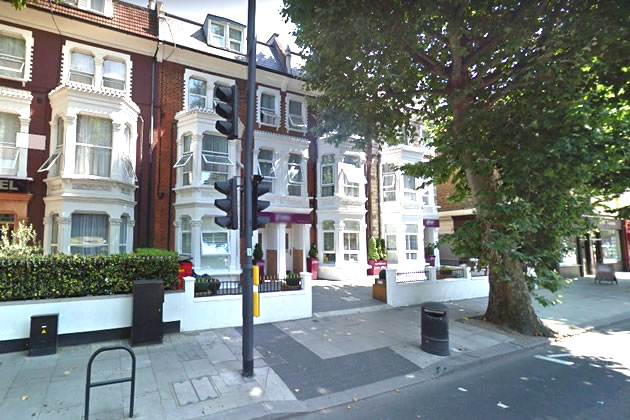Shepherd's Bush Road Homeless Hostel Given Consent
Opposition from some residents fails to block St. Mungo's plan

Hotels in 101,103 and 105 Shepherd's Bush Road to be converted. Picture: Google Streetview
A homeless hostel will open in Hammersmith later this year, despite residents’ outspoken fears that it will turn their community into “a ghetto”.
The charity St Mungo’s this Wednesday (2 February) won planning permission to convert two hotels in Shepherd’s Bush Road into a single hostel.
It will include a total of 40 self-contained flats with 24/7 security, and the temporary planning permission would last until November 2023.
It comes as the number of people sleeping rough in London has spiked while the pandemic has played havoc with the economy and caused job losses.
Hammersmith and Fulham saw a 21 per cent increase in people sleeping on its streets between September and December, according to a study by the Greater London Authority.
Nearly 60 residents objected to the new hostel, saying Hammersmith already has homeless shelters and a hotel used by the Home Office to house asylum seekers, which are causing problems. Only one person wrote in support of the new hostel.
The council commissions five other homeless accommodation facilities, including in King Street and Edith Road.
At yesterday’s Hammersmith and Fulham Council planning meeting, Astrid Winkler-Studd, a social worker, said, “We have experienced people openly urinating on the street in front of our children, shouting that wakes us all late at night, drinking, dealing, or prepping drug fixes on local doorsteps, in full view of children”.
She added, “Experience of these issues tells us, that concentrating a lot of traumatised people… in a neighbourhood that is already accommodating many others with similar needs, plus a number of asylum seekers and other vulnerable groups… is likely to result in a ghetto around these hostels which local people avoid, and they have already started to.”
Another resident, Lindsey Wright, said other local businesses would be “deeply impacted by people avoiding this area if this is approved”.
St Mungo’s service director, Adam Rees, sought to reassure the committee that the hostel would be well-run.
“The service proposed will be markedly different to the services that have sprung up during the response to Covid,” Mr Rees said.
“I want to emphasise that this service will be well-staffed, with at least three members of staff on at all times.
“It’s well-serviced, there’s security on at night, there’s CCTV in operation.
“Clients living with us are booked in with clear rules around behaviour, including no ASB [anti-social behaviour], no drug use, no street drinking or street begging in the locality. And staff carry out patrols… around the accommodation, and intervening where it’s safe to do so.”
He said the hostels help “break the cycle of homelessness”, and that the rooms will include en suite bathrooms, a TV, microwave, fridge and WiFi.
One planning committee, councillor Alex Karmel, a Conservative, was highly critical of St Mungo’s failure to consult with residents before submitting its planning application.
“I am quite frankly surprised that an organisation of St Mungo’s history has failed, given that they know what the local people are likely to say, to engage with them properly and try to assuage their fears,” he said.
Councillor Wesley Harcourt, Labour, and cabinet member for the environment, wanted assurances that St Mungo’s contract with the council will include terms about ensuring the local area is kept safe.
Julia Copeland, the council’s commissioner for homeless services, explained there will be key-performance indicators such as “the complaints they get and outcomes for residents”.
“Failure could lead to a range of penalties, including contract termination,” Ms Copeland said.
The committee’s six Labour councillors voted to approve the hostel. Two Conservative councillors voted against.
Owen Sheppard - Local Democracy Reporter
February 3, 2021